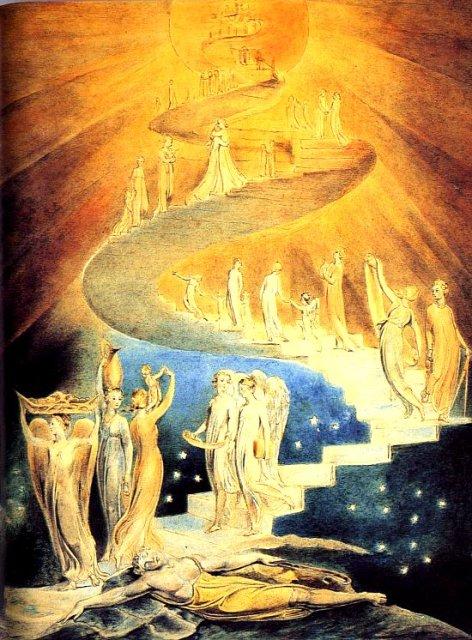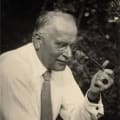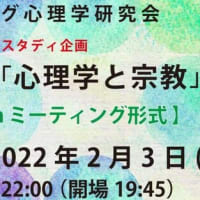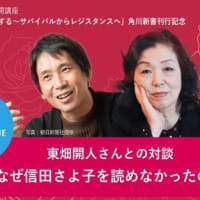
『ヤコブの夢』ウィリアム・ブレイク
創世記28章17節
:17)そして彼は恐れて言った、「これはなんという恐るべき所だろう。これは神の家である。これは天の門だ」。
創世記28章17節
:17)そして彼は恐れて言った、「これはなんという恐るべき所だろう。これは神の家である。これは天の門だ」。
「宇宙には既知のものと未知のものがあって、その中間には扉がある。」
- ウィリアム・ブレイク
- ウィリアム・ブレイク
"In the universe, there are things that are known, and things that are unknown, and in between, there are doors."
- William Blake
- William Blake
「自己とは自然の事実であり、常に直接の経験、夢やビジョンなどにそのように現れます。それは石の中の精神であり、それは自然そのものの中に埋もれているので、解明され、自然から抽出されなければならない偉大な秘密である。それはまた最も危険であり、すべての元型が含まれているため、元型の侵略と同じくらい危険です。元型の経験は自己の経験であると言えます。それは自然と、自然の中で経験できるあらゆるものを擬人化したようなものです。私たちが神と呼ぶもの。」CGユング。ニーチェのツァラトゥストラ: CG ユング、1934 ~ 1939 年に行われたセミナーのメモ、第 II 巻 (3) 1936 年 6 月)、p. 977。
“The self is a fact of nature and always appears as such in immediate experiences, in dreams and visions, and so on; it is the spirit in the stone the great secret which has to be worked out, to be extracted from nature, because it is buried in nature herself. It is also most dangerous, just as dangerous as archetypal invasions because it contains all the archetypes: one could say an archetypal experience was the experience of the self: It is like a personification of nature and of anything that can be experienced in nature, including what we call God.” CG Jung. Nietzsche’s Zarathustra: CG Jung, Note of the Seminar Given in 1934-1939, Vol.II (3) June 1936), p. 977.
「自己の象徴は、自我とは同一ではない全体性の概念です。それは正確には私たちの意識ではない意識であり、正確には私たちの光ではない光です。」CG Jung、Visions: Notes of the Senior Given in 1930-1934、Vol.I (1931 年 11 月 11 日)、p. 445.
“The symbol for the Self is an idea of a totality that is not identical with the ego. It is a consciousness which is not exactly our consciousness, a light which is not exactly our light.” CG Jung, Visions: Notes of the Seminar Given in 1930-1934, Vol.I (11 Nov. 1931), p. 445.
「私たちは自己を通じて、宇宙的な出来事の激流に巻き込まれます。本質的なことはすべて自己の中で起こり、自我は受信者、傍観者、そして送信者として機能します。」CG Jung、アネイラ・ジャッフェへの手紙、1942年12月22日、レターズ、Vol. 1、p. 326.
“Through the self we are plunged into the torrent of cosmic events. Everything essential happens in the self and the ego functions as a receiver, spectator and transmitter.” CG Jung , Letter to Aneila Jaffe, 22 Dec. 1942, Letters, Vol. 1, p. 326.
「すべての光、すべての火は終わりを迎え、完全な暗闇になりますが、最高の光である自己の光がまだ残っています。」CG ユング、ニーチェのツァラトゥストラ: 1934 年から 1939 年に行われたセミナーのメモ、第 1 巻。11 (1936 年 1 月 29 日) p. 792.
“[E]very light, every fire, comes to an end, and there would be utter darkness, but there is still left the light of the self, which is the supreme light.” CG Jung, Nietzsche’s Zarathustra: Notes of the Seminar Given in 1934-1939, Vol. 11 (29 Jan. 1936) p. 792.
「自己という言葉は、しばしば神の考えと混同されます。私ならそんなことはしません。私は、「自己」という用語は人間の経験の範囲内にある領域に対してのみ使用されるべきであり、私たちは神という言葉をあまり頻繁に使用しないように細心の注意を払うべきだと思います。私たちがそれを使用するとき、それは生意気なものに近くなります。このような概念を頻繁に使用することは違法です。自己の経験は非常に素晴らしく完全なので、それを表現するために神の概念を使いたくなるのは当然です。自己とは、具体的でありながら普遍的であるという特殊な性質を持っているので、そうしないほうがいいと思います。それは制限された普遍性、あるいは普遍的な制限性、パラドックスです。したがって、それは比較的普遍的な存在であり、したがって「神」と呼ばれるには値しません。それを仲介者 [ポータル?] と考えることもできます。私の言葉]、または神という概念に到達するまで広がり続ける自己の姿の階層。したがって、神という用語は、すべての特異点の絶対的な統一であると考えられている遠く離れた神に対して留保されるべきです。自己とは「前段階」[私の言葉を引用]人間を超えた存在であり、それが明確に現れるものです。それは私たちの思考の思想家であり、私たちの行為の実行者であり、私たちの人生の創造者ですが、それでもまだ人間の経験の範囲内にあります。」CG ユング、ニーチェのツァラトゥストラ: 1924 年から 1939 年に行われたセミナーのメモ、第 1 巻。II (1936 年 6 月 3 日) パー。977-78。
“The term self is often mixed up with the idea of God. I would not do that. I would say that the term self should be reserved for that sphere which is within the reach of human experience, and we should be very careful not to use the word God too often. As we use it, it borders on impertinence; it is unlawful to use such a concept too often. The experience of the self is so marvelous and so complete that one is of course tempted to use the conception of God to express it. I think it is better not to, because the self has the peculiar quality of being specific yet universal. It is a restricted universality or a universal restrictedness, a paradox; so it is a relatively universal being and therefore doesn’t deserve to be called “God.” You could think of it as an intermediary [a portal? my word], or a hierarchy of ever-widening-out figures of the self till one arrives at the conception of a deity. So we should reserve that term God for a remote deity that is supposed to be the absolute unity of all singularities. The self would be the “preceding stage” [quotes mine] a being that is more than man and that definitely manifests; that is the thinker of our thoughts, the doer of our deeds, maker of our lives, yet it is still within the reach of human experience.” CG Jung, Nietzsche’s Zarathustra: Note of the Seminar Given in 1924-1939, Vol. II (3 June 1936) par. 977-78.
「私たちが自己をキリスト、仏陀、プルシャ、タオ、キドゥル、ティファレトと呼ぶべき、あるいは呼ぶべきでない理由はまったくありません。これらすべての用語は、私が「自己」と呼ぶものを認識できる形で表現したものです。ユングと宗教的信念、1958)、CW 18、パー。1672年。
“There is no reason whatsoever why we should or should not call the beyond-self Christ or Buddha or Purusha or Tao or Khidr or Tifereth. All these terms are recognizable formulations of what I call the “self.” Jung and Religious Belief, 1958), CW 18, par. 1672.
















